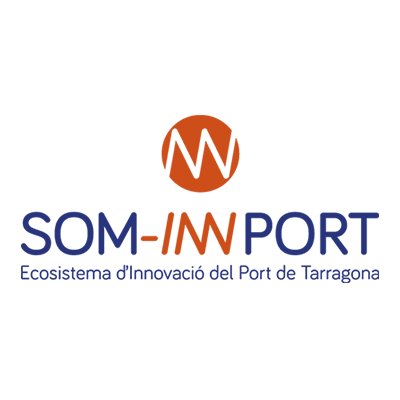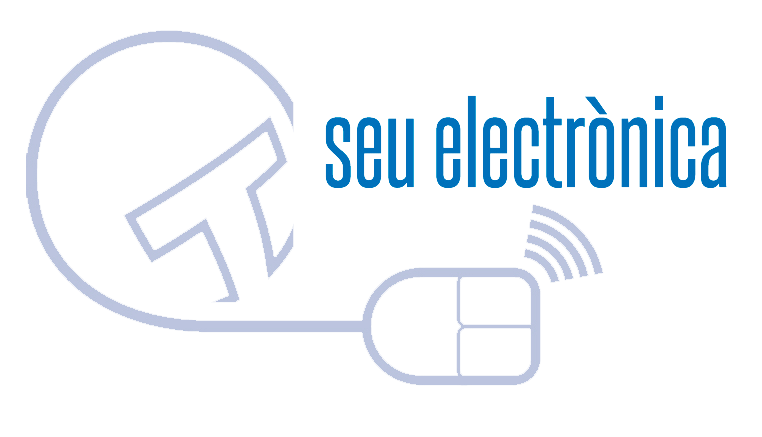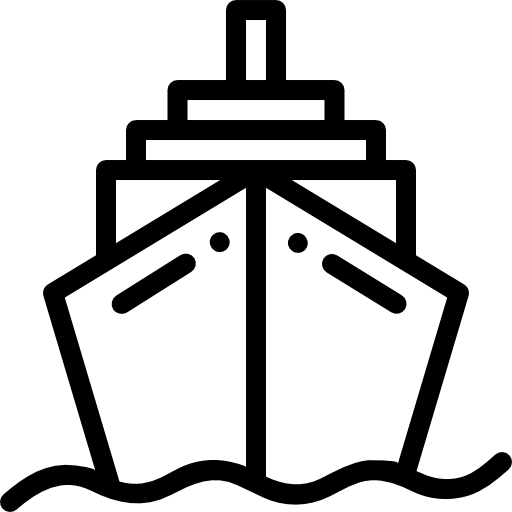INNOVATION
We want to innovate in processes, services and business models in the Port.
DATA CONTACT
Passeig de l'Escullera s/n, 43004
+34 977 259 400 (Ext. 120)
innovacio@porttarragona.cat
sominnport@porttarragona.cat
Passeig de l'Escullera s/n, 43004
+34 977 259 400 (Ext. 120)
innovacio@porttarragona.cat
sominnport@porttarragona.cat

Som-Inn Port
Key areas of open innovation
01
Competitive Monitoring
Trending exploration groups will be identifying innovation challenges, which are then put into action using a virtual cooperation platform.
02
Co-innovation through Design Thinking
Multidisciplinary teams will design ideas and concepts focused on resolving the challenges of innovation in a creative manner. This process will involve centre users, and be led by experts in Design Thinking.
03
The Rapid Development of Prototypes
This involves a rapid development and validation programme of the prototypes and pilot plans that have emerged from the co-innovation process, using Sprint methodology with the participation of technical experts in prototyping.
04
Training in Corporate Innovation
A corporate innovation training programme, divided into several stages (based on the innovation maturity of each organisation), which will help each participatory organisation develop its own innovation culture and abilities.
05
Networking among Som-Inn Port Members
Follow-up meetings and networking between members of the Innovation Ecosystem to find out what other members are doing, sharing experiences and best practices, etc.
Objectives
To promote innovation in the processes and services that the Port de Tarragona offers to its clients.
To cooperate – to create and implement a wide range of innovative ideas and projects in the common interest.
To foster shared knowledge and the culture of innovation.
To promote the innovative talents of the Port de Tarragona and the members of the Innovation Ecosystem at an international level.
To implement benchmarking to share knowledge, experiences and good practices in innovation.
To back professional talent in the Port de Tarragona and Innovation Ecosystem members.
To promote participation in European Innovation Projects. To create a unique experience in innovation for the port area.
To cooperate – to create and implement a wide range of innovative ideas and projects in the common interest.
To foster shared knowledge and the culture of innovation.
To promote the innovative talents of the Port de Tarragona and the members of the Innovation Ecosystem at an international level.
To implement benchmarking to share knowledge, experiences and good practices in innovation.
To back professional talent in the Port de Tarragona and Innovation Ecosystem members.
To promote participation in European Innovation Projects. To create a unique experience in innovation for the port area.

From SOM-INN PORT we collaborate with entrepreneurs, researchers, startups, spin-offs of universities, small and medium-sized technical companies and large corporations so that they can be presented to the different calls of Ports 4.0, offering the collaboration of the Port Authority of Tarragona as a member of the group that leads the project or as a facilitator agent, as well as facilitating letters of support to innovative projects that may be of interest to the port community of Tarragona.
If you have an innovative project related to the port logistics sector, do not hesitate to contact us through the sominnport.porttarragona.cat mail.
If you have an innovative project related to the port logistics sector, do not hesitate to contact us through the sominnport.porttarragona.cat mail.
MicroWorld_Puertos
The objective of this project, developed by Eurecat, the Technological Center of Catalonia, is the identification of bacterial nuclei capable of biodegrading plastic pollutants (microplastics and nanoplastics) in the port of Tarragona and the adjacent coast.
To achieve this objective, a bioinformatic characterisation of biodegrading bacterial cores of commercial microplastics will be carried out, of which potential risks will also be evaluated, and then microbiological biodegradation tests of these microplastics will be carried out in the environment of the Port of Tarragona.
This project has been funded by the line of grants for ideas of the third call for Ports 4.0 and the Tarragona Port Authority has collaborated as a facilitating agent.
To achieve this objective, a bioinformatic characterisation of biodegrading bacterial cores of commercial microplastics will be carried out, of which potential risks will also be evaluated, and then microbiological biodegradation tests of these microplastics will be carried out in the environment of the Port of Tarragona.
This project has been funded by the line of grants for ideas of the third call for Ports 4.0 and the Tarragona Port Authority has collaborated as a facilitating agent.


Digital twin platform for maritime platforms and port services
The project, developed by the companies McValnera and Kaitzen, proposes the development of a software platform that enables a digital twin planner to improve the efficiency of maritime operations and port services based on data analysis techniques, process optimization and scenario simulation, with the main objective of optimizing scale times and activities related to the canton of the sea and port terminal robberies, special emphasis on port and technical-nautical services. With this platform, it will be possible to act on the navigation and planning of arrivals and departures of ships and the provision and planning of port services.
With this software, maritime traffic can be managed more effectively; improving the allocation of resources and the sizing of port services; optimizing the allocation of berths; reducing scale times and carbon footprint; offering more transparency and collaboration and assisting data-based decision making.
With this software, maritime traffic can be managed more effectively; improving the allocation of resources and the sizing of port services; optimizing the allocation of berths; reducing scale times and carbon footprint; offering more transparency and collaboration and assisting data-based decision making.
NasApp
NasApp is a mobile application that combines citizen science, artificial intelligence and advanced technology to monitor, predict and manage episodes of bad smells in real time. Its objective is to integrate the olfactory sensory perception of citizens in real time in order to act as an early warning system for critical events and environmental surveillance, thus allowing a real-time response of these episodes.
The collected data configures a historical data repository that, as it grows, allows to specify more and more carefully the episodes of smell and its origin and dynamics, using artificial intelligence and machine learning to aggregate and process important data at all levels aimed at the well-being of citizens.
This project was funded by the line of aid for commercial projects of the second call for Ports 4.0 and the Port Authority of Tarragona collaborated as a facilitating agent.
The collected data configures a historical data repository that, as it grows, allows to specify more and more carefully the episodes of smell and its origin and dynamics, using artificial intelligence and machine learning to aggregate and process important data at all levels aimed at the well-being of citizens.
This project was funded by the line of aid for commercial projects of the second call for Ports 4.0 and the Port Authority of Tarragona collaborated as a facilitating agent.

WorldFriendly/Port
The WFriendly/Port project seeks to develop a new port model that serves as a common framework to unify criteria and analyze their development globally, defining a WFriendly/Port index automatically through algorithms, indicating the level of compliance with the model in the different ports.
The aim is to provide data and information linked to speed up compliance with the sustainable development objectives and the implementation of the technologies of the fourth industrial revolution in ports, developing a web application for their dissemination and commercialisation. To this end, technologies such as IoT, Big Data and artificial intelligence are used to be able to apply the WFriendly model and index on a large scale, and thus be able to analyze and process large volumes of information from different origins.
This project was funded by the line of ideas grants of the first call for Ports 4.0 and is a case of intrapreneurship, since the project developers, Nuri Bordas and Anna Navarro, are workers of the Tarragona Port Authority.
The aim is to provide data and information linked to speed up compliance with the sustainable development objectives and the implementation of the technologies of the fourth industrial revolution in ports, developing a web application for their dissemination and commercialisation. To this end, technologies such as IoT, Big Data and artificial intelligence are used to be able to apply the WFriendly model and index on a large scale, and thus be able to analyze and process large volumes of information from different origins.
This project was funded by the line of ideas grants of the first call for Ports 4.0 and is a case of intrapreneurship, since the project developers, Nuri Bordas and Anna Navarro, are workers of the Tarragona Port Authority.























